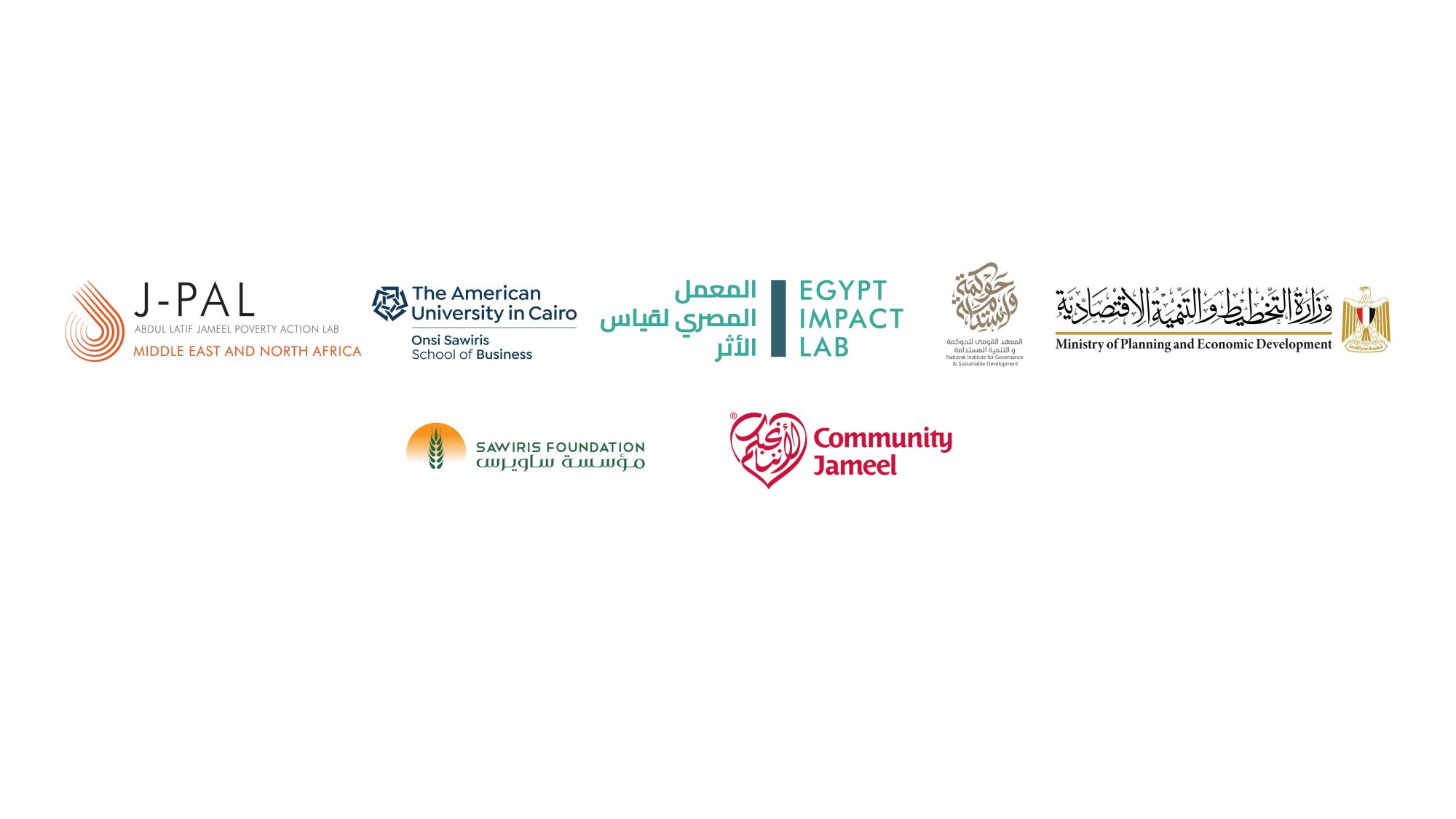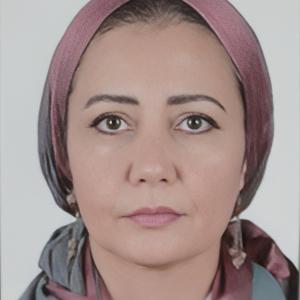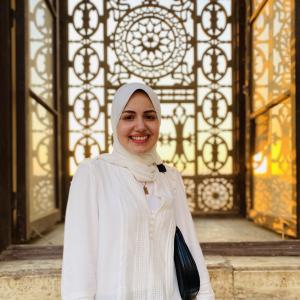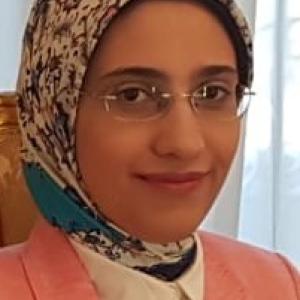J-PAL’s MENA Scholars Fellowship
The MENA Scholars Fellowship creates a pathway for MENA region-based researchers to build skills and experience to design and conduct randomized evaluations of poverty reduction and social development policies and programs.

Over a two-year fellowship, selected scholars will build networks, have access to mentorship from the J-PAL affiliate network, participate in a dedicated training program, and have the opportunity to contribute to a randomized evaluation with J-PAL MENA.
With support from Community Jameel and the Sawiris Foundation for Social Development, the MENA Scholars Fellowship supports early career researchers and scholars interested in expanding their research portfolio to include randomized evaluations. Cohorts of MENA Scholars Fellows will help shape J-PAL MENA’s research portfolio and strengthen the local grounding and policy influence of impact evaluations across the region.
The inaugural group of six MENA scholars were accepted in June 2023, engaging in a comprehensive program that encompasses rigorous academic coursework, active participation in J-PAL MENA's projects, and opportunities for mentorship and professional development. The second cohort, welcomed in 2024, includes six scholars representing Egypt, Morocco, and Lebanon, with expertise in climate finance, labor markets, gender, and health.
Fellowship Program Details
The fellowship includes eight components:
- Work on randomized evaluation: Fellows will work on a randomized evaluation with a J-PAL affiliate, J-PAL MENA staff (for evaluations in Egypt), and implementing partners, learning about and experiencing the lifecycle of an impact evaluation.
- Mentoring: Fellows will be paired with a mentor from the J-PAL affiliate network, J-PAL MENA Scientific Directors, or J-PAL MENA Post-Doctoral Fellows.
- Networking: Fellows will be a member of their cohort and a growing network of MENA Scholars Fellows, and will join a larger worldwide network of Scholars Fellows in other regions, in addition to having access to the J-PAL MENA network.
- Education: Fellows will enroll in and complete two MIT MicroMasters online courses to build skills in randomized evaluation design, econometric analysis, and other related areas.
- Capacity Building: Supplemental training targeted at the cohort of Fellows will be delivered by J-PAL MENA post-doctoral fellows and staff, focused on unique aspects of randomized evaluations in the MENA region, personal website development, proposal writing, and to offer deeper technical training.
- Media coverage: Fellows will have the opportunity to receive guidance from J-PAL and a public relations firm to increase media coverage of their research and policy implications.
- Event participation: Fellows will be invited to present and participate at J-PAL MENA policy events in the region alongside J-PAL affiliated professors and leadership.
- Evaluation Design Project: Fellows will have the opportunity in the second year of the fellowship to design their own randomized evaluation on a topic of their interest in the MENA region and with guidance from their mentors.
Each Fellow will receive a USD$15,000 stipend over the two-year fellowship period. Stipends will support Fellows’ participation and commitment to fellowship program activities.
Eligibility
To be eligible for the Fellowship, candidates must meet the following requirements:
- Education: Candidates should be specialized in Economics and/or relevant disciplines (such as public policy, political science, public health, statistics, etc.)
- Track 1 - PhD Students: This track is open for candidates that are currently pursuing a PhD in economics or a related discipline.
- It includes those whose nationalities are from the MENA region and are enrolled in PhD programs at universities in or outside the MENA region.
- Track 2 - Academic scholars: This track is open for candidates who have completed a PhD in economics or a related discipline and are affiliated with a MENA academic institution.
- Track 1 - PhD Students: This track is open for candidates that are currently pursuing a PhD in economics or a related discipline.
- Language skills: High-level of proficiency (fluent or native) in Arabic and English.
- Quantitative skills: Proficiency in Stata or R are highly recommended.
- Research in MENA: Fellows should manifest an interest in impact evaluation in policy issues related to poverty alleviation and development in the MENA region.
- Ability to contribute to the work of a team: Candidates should be able to contribute to research projects related to applied microeconomics and poverty alleviation in sectors such as education, health, climate change among others. Candidates have to be keen on running randomized evaluations (but not necessarily have prior experience conducting them). Candidates should be motivated and organized to work independently, and to deliver on their responsibilities as part of a multi-year research project team.
- Commitment: The candidate must be committed to completing all fellowship activities with J-PAL MENA for the duration of the fellowship, and actively participating in opportunities afforded via the fellowship.
Scholars spotlight: First cohort
Eman Eleish

Associate Professor of Economics and Program Director at the British University in Egypt
Eman Elish is an Associate Professor of Economics at The British University in Egypt (BUE) where she is the Programme Director of the undergraduate Economics programme at the Faculty of Business Administration, Economics and Political Science (BAEPS). Before joining BUE in 2010 she worked as a research expert at the Institute of National Planning (INP). She obtained her PhD in Economics from Ain Shams University.
Noha Magdy

Assistant Lecturer of Economics, Faculty of Economics & Political Science, Cairo University, Egypt
Noha Magdy is an Assistant Lecturer of Economics at the Faculty of Economics & Political Science, Cairo University. In 2016, she graduated with a Bachelor’s degree in Economics from the same faculty. Afterwards, she obtained a Master’s degree in Economics from the American University in Cairo (AUC) where her MA thesis tackled regional wage inequality in Egypt.
Nouf Abushehab

PhD student in Economics, Trinity College Dublin, Ireland
Nouf Abushehab is a PhD student at the Department of Economics at Trinity College Dublin, where she works on research related to development economics, poverty alleviation, gender and women’s empowerment. She worked at Trinity as a Research Assistant. Nouf holds a Master of Applied Science degree in Data, Economics, and Development Policy from the Massachusetts Institute of Technology; an MSc in Development Economics from City, University of London.
Reem AlSukait

Assistant Professor, King Saud University, Saudi Arabia
Reem F. Alsukait is an Assistant Professor at King Saud University where she works at the intersection of policy, economics, and health. She has numerous peer reviewed publications with a special focus on using fiscal policies for health promotion. She also works as a Health Consultant at the World Bank Group on areas related to food policy, health, and behavioral economics. She holds a master’s degree in Public Health from Tufts University’s School of Medicine, and a PhD in Food and Nutrition Policies and Programs from Tufts University Friedman School of Nutrition Science and Policy.
Yasmine Kamal

Assistant Professor, Faculty of Economics and Political Science, Cairo University, Egypt
Yasmine Kamal is an Assistant Professor of Economics at the Faculty of Economics and Political Science, Cairo University. She is currently a Senior Research Fellow at the World Trade Organization (WTO) Chairs programme, a Research Associate at the Economic Research Forum (ERF) and a Researcher at the EU-Mediterranean and African Network for Economic Studies (EMANES). She got her Ph.D. in Economics from Cairo University in 2019. Since 2012, she has been teaching undergraduate courses in International Economics, Microeconomics, and Macroeconomics.
Zakaria Mansouri

PhD student in Economics, Ibn Tofail University, Morocco
Zakaria holds a Master’s degree in Economics and Public Policy Evaluation from Mohamed V University – AGDAL and he’s currently a PhD student at Ibn Tofail University. He’s currently working on a randomized evaluation that seeks to improve academic achievement for university students. Prior to joining J-PAL, Zakaria was an intern at the High Commission for Planning where he worked on an impact evaluation of labor market intermediaries in Morocco.
Scholars spotlight: Second cohort
Aya Aboul Hosn
Ph.D student, American University in Washington, DC
Prior to joining J-PAL as a scholar fellow, Aya conducted fieldwork for an RCT in Sierra Leone and consulted with the World Bank in Beirut, Lebanon. Recently, she worked on research activities with the Social Protection & Health team at the Inter-American Development Bank. Aya is a 5th year PhD Candidate of Economics at American University, Washington DC. Her research interests are in development economics on topics related to forced migration, health, gender and labor markets.
Karine Moukaddem
Ph.D student, Aix-Marseille School of Economics
Karine is a PhD candidate at Aix Marseille School of Economics (Aix-Marseille University). She holds two Master's degrees, one in Theoretical and Empirical Economics and the other in International Economic Policy from Sciences Po Paris. Her research interests lie at the intersection of development economics, gender and political economy, with a particular focus on MENA countries. She holds an advanced PRESAGE certification in Gender Studies and is the 2020 Student of Honor of PSIA.
Merna Ihab
Ph.D student, Alexandria University
Prior to joining J-PAL as a scholar fellow, Merna completed an internship at the WHO headquarters in non-communicable diseases. She was awarded a USAID training fellowship at New York University for research on optimizing behavioral interventions. Merna is a PhD student and Assistant Lecturer at the Department of Dental Public Health, Alexandria University. She also conducted a randomized evaluation to optimize interventions aimed at improving children's oral health and holds a master’s degree in Dental Public Health.
Mona Elsayed
Ph.D student, Cairo University
Mona has participated in many research activities undertaken by different research institutions, including the Euro-Mediterranean Network for Economic Studies (EMEA), Economic Research Forum (ERF), American University in Cairo (AUC), Information and Decision Support Centre (IDSC), and the Middle East Centre of the London School of Economics and Political Science (LSE). Mona is an Assistant Lecturer of Economics and a PhD student at the Faculty of Economics and Political Science, Cairo University. Her primary research interests lie in the fields of Labor Economics and Migration.
Zakaria Elouaourti
Ph.D, Cadi Ayyad University
Zakaria joined J-PAL MENA in 2024 as a Scholar Fellow. He is a post-doctoral researcher, at Cadi Ayyad University, Morocco. Zakaria holds a PhD in Economics from Mohammed V University, Rabat, Morocco. His doctoral research, which examined the role of finance in development from a holistic perspective, was awarded the Excellence Prize for the best thesis in economics for the academic years 2017/2018 to 2021/2022 by the Faculty of Law, Economic, and Social Sciences of Rabat - Agdal. Currently, his research focuses on various areas within development economics, including structural transformation in Morocco, economic convergence, and the catching-up process in Africa. He is also investigating the labor market issues such as female labor force participation and the NEET phenomenon in North Africa.
Zeinab El Beltagy
Ph.D, Cairo University
Zeinab joined J-PAL MENA in 2024 as a Scholar Fellow. Prior to joining J-PAL, she worked at the International Food Policy Research Institute (IFPRI), conducting an impact evaluation of the Labor-Intensive Works Program in Yemen, focusing on agricultural productivity and food security. Zeinab is an Assistant Professor at Cairo University and an Adjunct Lecturer at Paris Dauphine and EDC Paris Business School. She holds a PhD in Economics from the Paris School of Economics where her dissertation explored female entrepreneurs and firm performance. Her research interests focus on impact evaluation of public policy, climate finance, and development economics.